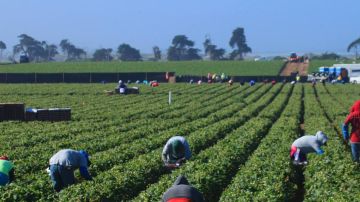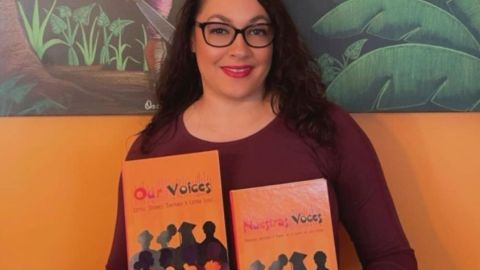Coachella in California is First City in Nation to Give Hero Pay to Farmworkers
The Coachella City Council unanimously approved “hero pay” for certain essential workers and extended the hazard benefits to farmworkers

Photo: Facebook/@Farmworker Justice
The Coachella City Council unanimously approved “hero pay” for certain essential workers and extended the hazard benefits to farmworkers.The emergency ordinance requires certain agricultural operations – in addition to grocery stores, retail pharmacy stores and restaurants – to provide an additional $4 per hour to their employees in Coachella for at least 120 days. Coachella is the first city in the nation to require premium pay for farmworkers, according to city leaders, USA Today reported. Latino food and agriculture workers have experienced nearly a 60 percent increase in excess mortality during the pandemic, according to research by the University of California-San Francisco.
Latinos make up 92 percent of farmworkers in California and according to the Los Angeles Times, approximately 8,000 farmworkers live in the Coachella Valley area. While the hero pay is a step in the right direction, there is still a lot that needs to be improved when it comes to aiding the Latino population in California during this pandemic.
New York was the long-standing state for the highest number of coronavirus cases and now California has officially surpassed it. 46,022 Californians have died from the coronavirus as of Feb. 12 according to Johns Hopkins University. The Latino population represents 46.3 percent of Covid-19 deaths as of Feb. 10 despite making up 38.9 percent of the state’s population, ABC reported. They also make up 55 percent of the state’s cases and have the greatest share of cases and deaths at every age group, except among ages 80 and up.
While Latino workers make up only 38 percent of the state’s workforce, half of the state’s frontline workers are Latino, according to the Legislative Analyst’s Office of California. They also found that Latino and Black workers are less likely than other workers to have jobs that can be done remotely. Yet despite the fact that they continue to put their lives at risk, vaccination rates among Latinos remains low as the state shifted from labor to age requirements.
The median age of a Latino in California is 28 and only 7 percent of Latinos in the state are older than 64, according a 2017 report. Currently, you have to be 65 or older to make a vaccination appointment for non-health workers. Since it’s now only available to health care workers, front-line workers working in service, production, and transportation are not currently eligible for the vaccine. According to recent data from the US Centers for Disease Control and Prevention, just under 12 percent of those vaccinated in the first month of the vaccine rollout were Latino nationwide. Additionally, there’s the issue of accessibility, education, and language barriers as well as a flexibility in hours as many work during the day and that’s when vaccinations are available.
Agricultural worker Yaneth Gutierrez, 34, lost her job picking carrots two weeks after she tested positive and did not show up to work. “I feel discriminated against,” Gutierrez told NBC News. “I think they should give those of us in the fields priority. I think we all deserve the vaccine.”

















